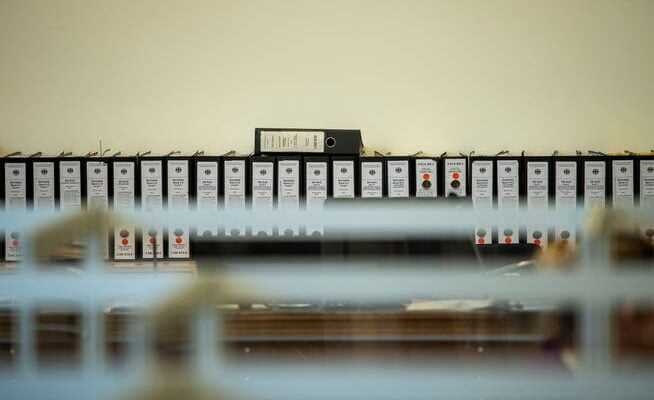The verdict was passed in Koblenz in the world’s first criminal case against representatives of the Syrian regime. However, despite the importance of the trial, there was no translation into Arabic or an official record of the trial. This has to change.
Even with historically important processes like in Koblenz, there is still no verbatim protocol. Video recordings have been allowed since 2017, but the courts do not use this option.
The German judiciary deserves credit for the state torture trial in Syria, which ended with the verdict against the main defendant on Thursday in Koblenz. For the first time, two members of the secret service had to answer for the crimes of the Bashar al-Asad regime. For the first time, a court has officially recognized that the systematic torture of prisoners in Syria is a crime against humanity. In more than 100 days of trial, the judges heard dozens of witnesses and meticulously reconstructed Asad’s torture system.
The Koblenz trial made legal history, and its significance extends far beyond Germany. It is all the more incomprehensible that the court refused to allow video or audio recordings of the hearings, which would allow the wider public and posterity to follow the proceedings in detail. There is also no verbatim protocol in which one could read what the survivors said about their abuse in the dungeons of the Syrian regime.
Those who could not be present in person in the courtroom had to rely on media reports and the minutes that the European Center for Human and Constitutional Rights (ECCHR) prepared in German and Arabic. The lawyer Patrick Kroker, who was in court every 107 days for ECCHR, agrees that trials should not be a media spectacle. However, the rules should not be interpreted in such a way that those affected would be excluded.
“History only remembers documents”
While in France, for example, the current trial of the Islamist attacks in Paris is of course recorded in sound and images, this is still unusual in Germany. Even the proceedings against the right-wing extremist terrorist cell NSU were not recorded for posterity. Here, too, it was only thanks to hard-working journalists and the activist group NSU-Watch that the more than 400 days of negotiations were documented in detail.
Admittedly, recordings have been permitted since 2017 in processes “of outstanding contemporary historical importance for the Federal Republic of Germany”. Hardly any other court uses this option – not even the one in Koblenz. This has caused anger and incomprehension among Syrians. “History only remembers documents,” says Syrian torture survivor Wassim Mukdad rightly.
It is not just important that justice be done. The world must see this too.
In Koblenz there is also the fact that the court refused to allow the audience to have simultaneous translation into Arabic. The hearing was translated as usual for the two defendants, but the Syrian viewers were not allowed to overhear. Without sufficient knowledge of German, those who are most affected by the proceedings could not follow the negotiations. Most Syrians therefore gave up in frustration at some point.
Not only is it important that justice be done, it is also important that it be made public, as Human Rights Watch rightly pointed out. Nevertheless, there should be no Arabic translation for viewers at the trial against the Syrian Alaa M., who is said to have tortured and killed numerous prisoners in a military hospital in Damascus as a doctor and secret service employee, which will soon begin in Frankfurt am Main.
It is important to protect the personal rights of the accused – especially in normal criminal proceedings that are not of greater public interest. With historical proceedings like the one in Koblenz, however, it is time for the German judiciary to change its practice. After all, the new federal government has recognized the problem. In the coalition agreement it says: “The main negotiations must be recorded in picture and sound.” The trial in Frankfurt would be a good moment to put this project into practice.
